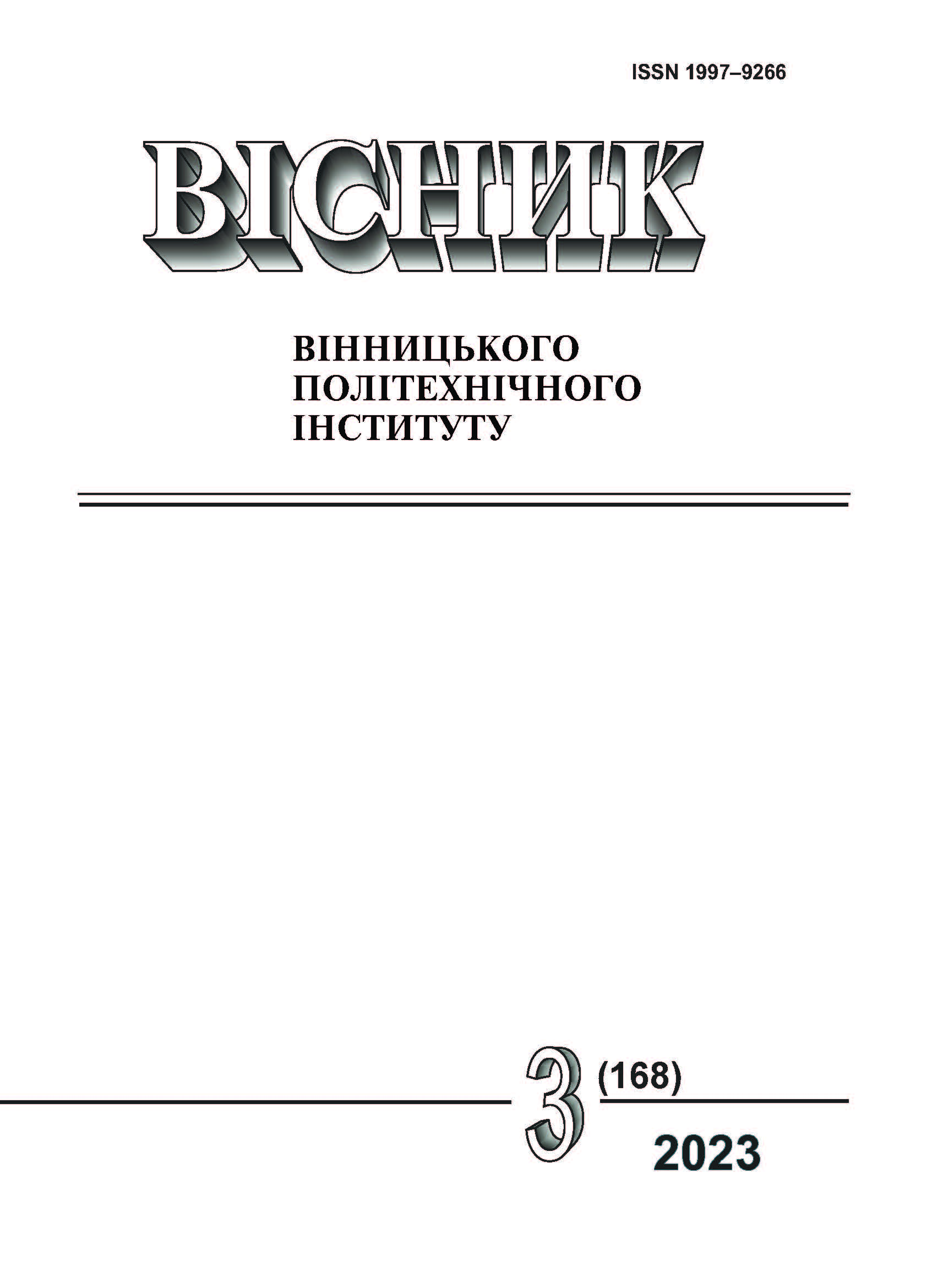Methodological Fundamentals of Training Specialists for the Implementation of the Car Recycling System in Ukraine
DOI:
https://doi.org/10.31649/1997-9266-2023-168-3-90-99Keywords:
innovative methods of education, recycling, rational use of nature, ecologically clean technologies, waste disposal, auto componentsAbstract
The purpose of the work is to develop a methodology and program for training specialists for the organization of production activities in the field of transport vehicles and technologies in a way that would ensure rational environmental management and minimization of the consequences of the production, operation and disposal of motor vehicles on the state of the environment using resource-saving technologies.
The method of teaching the discipline is based on the use of innovative teaching methods and educational technologies, namely: methods of synectics, multidimensional matrices, free associations, heuristic questions, non-imitation teaching methods and the inversion method, which is focused on finding ideas for solving a creative task in new, unexpected directions.
Results: the syllabus of the selective discipline was developed for the masters of specialties "101 Ecology" and 274 "Automobile transport". The syllabus of the discipline consists of a theoretical course of lectures and practical works. The lecture course includes a block of lectures that acquaints the students with the 2nd level of education with the environmental aspects of modern technologies for recycling metal parts of motor vehicles, environmentally safe methods of recycling batteries and catalytic converters. The second block is devoted to the analysis of modern technologies for recycling non-metallic car parts, namely polymers, lubricants and worn tires. Special attention is paid to the analysis of various means of application of auto component recycling products in the production of industrial products. In the development of the cycle of practical works, methods of inversion, multidimensional matrices, computer technologies, etc. were used. To test knowledge, test tasks of various levels and an exam are provided.
The scientific novelty of the work consists in the development of materials and the creation of a new discipline for the training of specialists who will be able to take part in the creation of a new industry for Ukraine, namely auto recycling.
The practical significance of the work lies in the possibility of using the results of the work in the development of curricula of various disciplines for a wide range of specialties that deal with issues of rational nature management.
References
Н. В. Внукова, В. П. Волков, І. В. Грицук, О. Ї. Позднякова, і Т. В. Волкова, Екобезпека та ресурсозбереження при утилізації автомобілів. Херсон, Україна: Видавництво ОЛДІ_ПЛЮС, 2021.
А. І. Прокопенко, Є. В. Підчасов, В. В. Москаленко, С. О. Доценко, і В. В. Лебедєва, Технології дистанційного навчання: методологія створення та супроводу навчальних курсів. Харків, Україна: Мітра, 2019.
Система електронного навчання ВНЗ на базі MOODLE, Ю. В. Триус, Ред., Черкаси, Україна: ЧДТУ, 2012, 220 с.
В. М. Кухаренко, Тьютор дистанційного та змішаного навчання. Київ, Україна: Міленіум, 2019.
Claus Nygaard, Geoffrey Crisp, Kayoko Enomoto, and Richard Warner, Teaching and Learning Practices in Higher Education. Australia: Libri Publishing Ltd. Innovative, 2018. ISBN: 9781911450351 .
John Branch, Sarah Hayes, Anne Hørsted and Claus Nygaard. Innovative Teaching and Learning in Higher Education, pp. 444, 2017. ISBN: 9781911450085 .
Сучасні платформи для дистанційного навчання: широкий вибір, безмежні можливості. [Електронний ресурс]. Режим доступу: http://hrdocs.ru/poleznaya-informacziya/sovremennyie-platformyi-dlya-distanczionnogo-obucheniya-shirokij-vyibor,-bezgranichnyie-vozmozhnosti . Дата звернення: 29.04.2020.
В. Г. Гетта, та ін., Дистанційне навчання: дидактика, методика, організація. Чернігів, Україна: ЧНПУ, 2017.
В. Бакіров, і М. Огарков, «Пандемія може назавжди змінити вищу освіту,» Дзеркало тижня. 2021. [Електронний ресурс]. Режим доступу: https://zn.ua/ukr/EDUCATION/pandemija-mozhe-nazavzhdi-zminiti-vishchu-osvitu.html .
О. С. Воденнікова, Л. В. Воденнікова, і Л. П. Гайдук, «Застосування дистанційного навчання в закладах вищої освіти,» на Бъдещите изследвания, XVI Міжнар. наук.-практ. конф., Софія, 2020, с. 9-12:
Н. Внукова, і О. Позднякова, «Методологічні основи підготовки фахівців до застосування ресурсозберігаючих та природоохоронних технологій в автомобільно-дорожній галузі України в умовах дистанційної освіти,» in Theoretical foundations of pedagogy and education: collective monograph. Section — Theory, practice and teaching methods. Boston: Primedia eLaunch, 2022, рр. 497-510. https://doi.org/10.46299/ISG.2022.MONO.PED.2 .
International Material Data System (IMDS), 2020. [Electronic resource]. Available: http://www.mdsystem.com .
Global Automotive Declarable Substance List (GADSL), 2012. [Electronic resource]. Available: http://www.gadsl.org .
А. В. Гриценко, Н. В. Внукова, і О. І. Позднякова, «Сучасне спалювання продуктів піролізу шин та деревних пелетт,» Енергетика, т. 64, № 4. с. 363-376, 2021. https://doi.org/10. 21122/1029-7448-2021-64-4-363-376 .
Н. В. Внукова, та О. І. Позднякова, «Ресурсозберігаючі та природоохоронні технології на транспорті,» Свідоцтво про авторське право на службовий твір науково-практичного характеру № 58460, 05.02.2015 р.
V. Volkov, N. Vnukova, I. Taran, O. Pozdnyakova, and T. Volkova, “Influence of diesel vehicles on the biosphere,” Naukovyi Visnyk Natsionalnoho Hirnychoho Universytetu, no. 5, pp. 94-99, 2021. [Electronic resource]. Available: https://isg-konf.com/theoretical-foundations-of-pedagogy-and-education-2/ .
Downloads
-
PDF (Українська)
Downloads: 134
Published
How to Cite
Issue
Section
License

This work is licensed under a Creative Commons Attribution 4.0 International License.
Authors who publish with this journal agree to the following terms:
- Authors retain copyright and grant the journal right of first publication.
- Authors are able to enter into separate, additional contractual arrangements for the non-exclusive distribution of the journal's published version of the work (e.g., post it to an institutional repository or publish it in a book), with an acknowledgment of its initial publication in this journal.
- Authors are permitted and encouraged to post their work online (e.g., in institutional repositories or on their website) prior to and during the submission process, as it can lead to productive exchanges, as well as earlier and greater citation of published work (See The Effect of Open Access).





